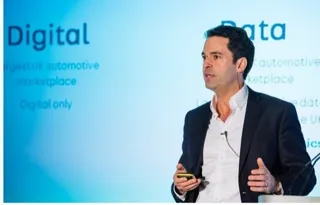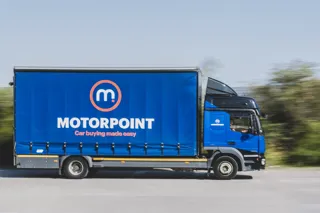What are your priorities for the next twelve months?
"In a situation where the whole of Europe is rather stagnating and sales are even dropping in some markets, we must consolidate our position in the first place. Škoda Auto has a good starting position to achieve that goal. However, we must also define our future and a strategy of our brand and products, which models and when we will innovate; we must look for new segments and products to fill these segments with.
"We have the first generation of the Fabia and Octavia behind us, we have begun the second generation, and the question arises what else we can do. For this reason, we must adapt strategic decisions.
"We also have to think about how to further integrate the Škoda brand into the group in order to create positive synergy for Škoda but also to bring something to the group ourselves. At the beginning, know-how was only streamed from the group to Škoda Auto, whereas now we have enough competent engineers to offer their knowledge for the benefit of the Group. This is another challenge for us."
The Korean car makers have lately made significant headway. Even recently, Škoda cars were said to compete with Volvo; nowadays, there are also talks about Hyundai. Where can you see your greatest competitors now
"If we look where our customers come from, we can say that Škoda is a widely-defined brand. It is of interest to customers of European brands, but also to those of Japanese or Korean brands. Its engagement is wide, which means that it is healthy. We said a year ago that Volvo could be our strategic competitor; we have already outclassed this make. That was a challenge for us, and we have succeeded.
"At present, we concentrate on Western European competition; our corporate identity is expressed in the slogan "Simply Clever", the task of which is to communicate that our goal is to be attractive, to manufacture smart products and to accommodate a demanding customer.
If Renault is called the creator of cars ("Créateur d‘Automobiles") and a specialist in details, we prove to be this in every respect, as evidenced by our products. "Simply clever" means that our offer is reasonable and intelligent, our design is attractive, which is Peugeot’s pride, and we have also achieved Volvo’s quality. I must repeat that we are a European-oriented company as to production, quality and style, and we are at least equal to the Asian competition."
Dacia Logan appeared on the Central and East European market, and a mini model will soon come from Toyota’s and PSA’s joint factory in Cologne. Will Škoda Auto respond to that? The media wonder about whether you consider transformation of the Fabia into a smalle rmodel."
"They have announced the Logan, originally planned for Central and Eastern Europe, now also for Western Europe although for a different price: € 7,500 to be specific. Renault had earlier put a similar small model, Thalia, on the market. So the question arises: What do customers want? As in the past, people want a roomy car for a low price. We offer this in the form of Fabia, and it was the same way with the Felicia. I don't think that a minicar can be a success in this market and that it would be worth developing it.
"The question is whether we are able to develop concepts for eight or ten thousand Euros instead of six or seven thousand. This is what we endeavour to do; an example of this is the estate version of the Fabia, which is a multipurpose vehicle rather than an estate. And we can manage that for ten thousand Euros and even less in some countries.
We came up with the Roomster and think that this is an answer to the needs of Central but also Eastern Europe. If you look at the price structure in Central Europe, you will not find many vehicles for less than eight thousand Euros. You can find cheaper large cars but usually they are products that lose their value within a year or two.
"But we want to offer something of lasting value. We will not make amini car and think that there is no demand for that anyway. Customers still wants a roomy car. We want to sell it for a low price but don’t want it to be small."
Having mentioned the Roomster design study, will it be produced? If so, will it be a multipurpose version based on the Fabia or even its successor?
"We have shown the Roomster and decided that it would go into production, but it is not a successor to the Fabia. It is a new model, possibly a new model range, and it does not follow any trend, although crossovers are much discussed at present.
If we wanted a crossover and followed a trend, we would make a combination of a coupé and an estate as crossovers are generally construed today. They have been on the market for two or three years. The question is: What will the crossovers look like in the future?
"Škoda Auto’s strategy is to provide plenty of space for a favourable price. The Roomster is not an MPV in the literal sense of the word; it will be very variable. It will be a space concept, much more than an estate car: a saloon with much space, a new type of crossover. I think that we will start a new trend and it will be a new Škoda Auto model family, not a successor to the Fabia. There will also be some models following in the footsteps of the Roomster."
Will it be based on the Fabia platform?
"At present, we don’t take platforms so strictly; we can assemble vehicles in modules. What we will use is a modular concept. It includes Fabia as well as Octavia features and moreover, several new features."
The market comes up with interesting products that are competitive in terms of quality these days, offering an interesting utility value…
"You are right to mention a utility value. Selling price is not all that counts. The situation is that everybody or almost everybody has got a car, whether a new one or a used one. When buying a new car, the customer often gets rid of his old one.
The value of the used car is important here. How much will I get and how much shall I add in order to buy a new car? That is why the utility value and again the selling value play a critical role. And Škoda Auto is successful here. We have a very high value for used vehicles. Škoda maintains its value; it is a kind of investment that does not lose value."
Škoda Motorsport is coming back to the World Rally Championship. Will you take this fact into account in your model supply? Will you continue with the vRS models? Given the sports tradition of Škoda cars, could a purely sporty model appear, for example a sort of the Škoda Tudor concept?
"Not only will we take part in the world championships, but we want to battle our way to the top and score podium places. Naturally, we will make the most of it on the market. We will certainly be engaged in concepts, as we will bring WRC features to our production models and derive some versions from that. But we will surely not produce any sports cars.
We are not a classic sports brand and we don’t want to make our profile unclear. This, however, does not prevent us from having top versions such as the vRS within the particular model ranges, sporty action models, for instance a WRC edition."
The Roomster concept car has shown a new, more distinct design. Will Škoda car design progress from the rather conventional to a more distinct one?
"Design is one of the most significant factors when deciding what car to purchase. It arouses emotions and excites, which is why new Škoda Auto cars, too, will feature a more distinctive design in the future. This has been shown by the Roomster, but the new Octavia design is also more outstanding as well. We have good designers, which is being reflected in new models."
How would you characterise the labour force in the Czech Republic? Can you see any basic differences as compared with the other countries, for example Germany?
"I can’t judge the entire Czech Republic, but I can express my opinion of our factories. Our workers and their qualifications are among the factors of our company’s success. Our employees who are master craftsmen, are motivated, skilled and hardworking.
This is due to Czech tradition as well as Škoda training. Cars have been manufactured in Mladá Boleslav for over one hundred years. And although we, Germans, are very orderly and organized – so much that we can hardly break out of it – among the Czechs you can see a capacity for improvising, so we complement one another."
In which markets can you see growth?
"We still have room for growth in Western Europe. We are not satisfied with our expansion in some countries, and it is always a challenge for us. As to Central Europe, we are leaders here and want to keep this position. We have strong prospects in Eastern Europe, Russia and Ukraine as well as China and other countries."

















Login to comment
Comments
No comments have been made yet.